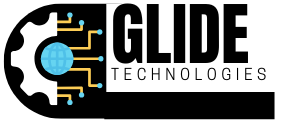Table of Contents
ToggleIn a world where software reigns supreme, SaaS (Software as a Service) has become the superhero of the digital marketing realm. Picture it: a cloud-based solution swooping in to save businesses from the chaos of traditional marketing methods. With the ability to scale, adapt, and deliver results faster than a speeding bullet, SaaS digital marketing is the secret sauce every business needs to thrive.
But wait, there’s more! It’s not just about fancy tools and shiny dashboards. SaaS digital marketing combines data-driven strategies with creativity, making it the ultimate sidekick for marketers everywhere. Whether it’s automating campaigns or analyzing customer behavior, this dynamic duo is here to turn potential leads into loyal customers. So buckle up, because diving into the world of SaaS digital marketing might just be the best decision a business could ever make.
Overview of SaaS Digital Marketing
SaaS digital marketing fundamentally changes how companies promote products. Scalability remains a key advantage. Businesses can adjust marketing efforts quickly to match customer demands.
Data-driven strategies contribute significantly to SaaS’s effectiveness. Marketers analyze customer behavior through sophisticated analytics tools, improving campaign performance. Enhanced targeting means reaching the right audience with personalized content.
Automation is another crucial aspect of SaaS digital marketing. By automating workflows, companies streamline repetitive tasks, freeing up time for strategic initiatives. Saving time leads to increased efficiency and higher productivity.
Creativity complements data-driven approaches. Effective campaigns combine compelling visuals with data insights, attracting customer attention. Innovative content formats help companies stand out in a crowded market.
Pricing models associated with SaaS often include subscription plans. Businesses can choose from various options to fit their budget and requirements. This flexibility enables companies to manage costs effectively while leveraging powerful marketing tools.
Integration serves as a significant benefit as well. Many SaaS platforms connect easily with existing systems, enhancing overall marketing tactics. This interoperability allows businesses to create seamless customer experiences across channels.
Embracing SaaS digital marketing offers unparalleled opportunities for growth. Companies leverage its benefits to deploy tailored strategies that reflect evolving market dynamics. Adaptation and innovation lead to the successful engagement of target audiences and maximize return on investment.
Key Benefits of SaaS Digital Marketing

SaaS digital marketing provides numerous advantages that can significantly enhance a business’s marketing efforts. Companies can experience distinct benefits such as cost efficiency, scalability, and enhanced collaboration.
Cost Efficiency
SaaS digital marketing offers notable cost savings compared to traditional methods. Subscription models eliminate high upfront costs associated with software purchases. This approach allows businesses to pay only for what they use, minimizing waste. Additionally, ongoing maintenance and upgrades are often included, reducing hidden expenses and IT resource allocations. By leveraging SaaS solutions, companies can focus resources on strategic growth initiatives instead of managing software infrastructure.
Scalability
Scalability stands out as a core benefit of SaaS digital marketing. Companies can easily adjust their marketing tools and strategies based on fluctuating demands. As businesses grow, they can expand their software capabilities without major overhauls. This flexibility enables seamless adjustments to campaigns, ensuring they align with ever-changing market dynamics. Moreover, SaaS platforms often provide the capacity to handle increased data influx without compromising performance.
Enhanced Collaboration
Enhanced collaboration is another key advantage provided by SaaS digital marketing platforms. Teams can access tools and data from anywhere, fostering real-time communication and idea sharing. With centralized data storage, collaboration becomes more efficient, as everyone works from the same updated information. This environment streamlines project management and accelerates campaign development. Ultimately, empowered teams can deliver creative solutions that resonate with target audiences more effectively.
Tools and Platforms for SaaS Digital Marketing
SaaS digital marketing relies on various tools and platforms to accelerate growth and enhance effectiveness. Businesses need to choose the right solutions to maximize their marketing strategies.
Email Marketing Software
Email marketing software plays a vital role in SaaS digital marketing by automating campaigns and tracking performance. Popular platforms like Mailchimp, HubSpot, and SendGrid provide features such as customizable templates, segmentation options, and advanced analytics. These tools enable businesses to target specific customer groups, personalize content, and monitor engagement metrics. Companies benefit from the ability to automate follow-ups and schedule campaigns, ensuring timely communication with customers. Email marketing software simplifies audience management and enhances overall campaign efficiency.
Social Media Management Tools
Social media management tools streamline content scheduling, monitoring, and analytics. Tools like Hootsuite and Buffer empower businesses to manage multiple accounts from a single dashboard. Organizations gain insights into audience engagement and prefer posting timings through analytics features. Customizable reporting options help in assessing campaign effectiveness and informing future strategies. Engaging with customers across platforms becomes effortless while maintaining brand consistency. With responsive tools, companies can quickly address inquiries and adapt content to market trends, enhancing customer relationships.
Best Practices for SaaS Digital Marketing
SaaS digital marketing thrives on strategic practices that drive engagement and conversion. Understanding the audience and creating compelling content are foundational elements.
Target Audience Analysis
Identifying target audiences enhances marketing effectiveness. Companies analyze demographic data and online behaviors to understand their customers’ needs and pain points. Creating detailed buyer personas helps tailor messaging that resonates with specific groups. Employing tools like Google Analytics and customer feedback surveys enables teams to gather insights. Engaging with social listening tools allows for real-time understanding of audience preferences and trends.
Effective Content Strategy
Developing an effective content strategy is essential for SaaS marketing success. Creating valuable content such as blog articles, videos, and whitepapers engages potential customers. Diversifying content formats caters to varied preferences and learning styles. Incorporating SEO best practices improves visibility in search engines. Regularly updating content keeps information relevant and positions the brand as an industry leader. Analyzing performance metrics helps refine strategies and enhance audience engagement over time.
Challenges in SaaS Digital Marketing
Navigating SaaS digital marketing presents various challenges that require attention. Customer retention often proves difficult as users may switch to competitors with ease, emphasizing the need for exceptional service and consistent value.
Competition in the SaaS space intensifies every year. New entrants disrupt established players, which makes differentiating products crucial. Strategic pricing models frequently confuse potential customers, who struggle to compare subscription options and features effectively.
Measuring ROI adds another layer of complexity. Marketing teams must implement robust analytics tools to assess campaign performance accurately and identify which strategies yield significant returns. Data privacy regulations also play a pivotal role; compliance with GDPR and other laws restricts how companies can collect and utilize customer data.
Integration with existing tools can challenge marketing execution. Compatibility issues may arise, hindering seamless operations between SaaS platforms and legacy systems. Additionally, managing multiple SaaS subscriptions complicates budget allocation and organizational coordination.
Marketing content must resonate with diverse audience segments. Crafting personalized, relevant messages tailored to various buyer personas requires ongoing research and audience understanding. Balancing automation with human creativity remains crucial in developing engaging content that connects emotionally with users.
Time constraints can limit the ability to execute marketing strategies effectively. Faster-paced markets demand rapid adjustments to campaigns and messages, which tests the agility of marketing teams. Each of these challenges underscores the importance of strategic planning and adaptation in SaaS digital marketing.
SaaS digital marketing stands out as a revolutionary force in the business landscape. By leveraging its scalability and automation, companies can enhance their marketing strategies and drive growth. The integration of data-driven insights with creative content allows for more effective targeting and engagement.
As businesses navigate the challenges of customer retention and competition, adopting SaaS solutions can provide the flexibility needed to thrive. With the right tools and best practices in place, organizations can optimize their marketing efforts and achieve a significant return on investment. Embracing this approach not only positions companies for success but also empowers them to adapt to the ever-changing digital environment.



